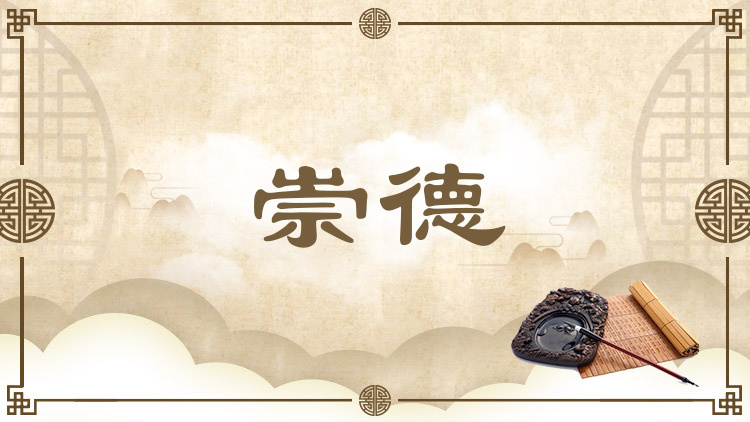
来源:“学习强国”学习平台
提升品德。早期儒家的《论语》《周易》等文献中都提到“崇德”的观念。儒家高度重视人的道德,而人的道德需要不断地提升和完善,这即是“崇德”的过程。人们可以通过对忠信等道德原则的坚守来修正自己的言行,以提升自身的道德修养。同时,只有不断磨炼,才能真正实现“崇德”。
This term refers to elevation of moral character, a concept which is first mentioned in early Confucian classics such as The Analects and The Book of Changes. Confucianism placed great emphasis on human morals, believing that such morals should be constantly fostered and elevated; and this is the process of moral elevation. By steadfastly observing the moral principles of loyalty and good faith, people can improve their pronouncements and deeds, thereby elevating their moral cultivation. Moral elevation can only be achieved through sustained efforts.
引例 Citations:
◎子曰:“主忠信,徙义,崇德也。”(《论语·颜渊》)
孔子说:“以忠信为本,改变自己的言行以合于道义,就是提高德行。”
Confucius said, "To be loyal, act in good faith and change your pronouncements and deeds so as to do what is right – that is elevating moral character." (The Analects)
◎夫《易》,圣人所以崇德而广业也。(《周易·系辞上》)
圣人通过《周易》来提高德行、光大事业。
The sage elevates people's moral character and improves their deeds through The Book of Changes. (The Book of Changes)
推荐:教育部 国家语委
供稿:北京外国语大学 外语教学与研究出版社
责任编辑:刘怿莎





